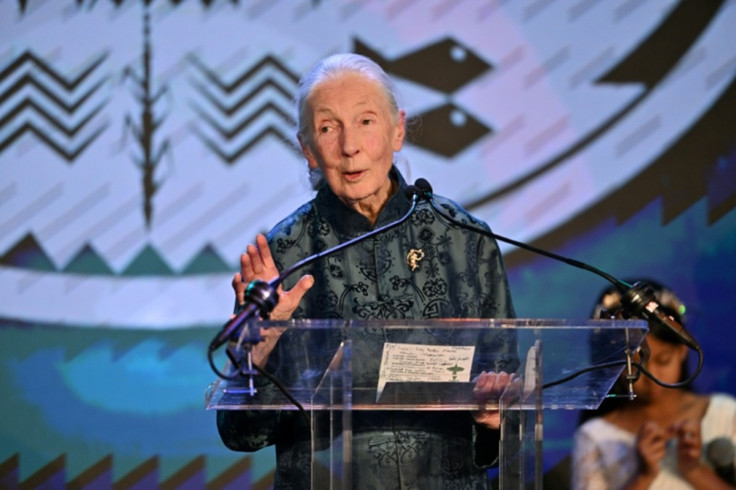Jane Goodall Dead At 91: What Was Her Plagiarism Scandal Over 'Seeds of Hope' Book About?
Goodall apologised, citing chaotic note-taking and workload

Dame Jane Goodall, the pioneering primatologist whose research transformed global understanding of chimpanzees, died on 1 October 2025 at the age of 91. She was celebrated worldwide for her six decades of fieldwork at Gombe in Tanzania, her advocacy for conservation and her influence as an environmental campaigner.
As tributes poured in, one episode from her long career has resurfaced. In 2013 Goodall faced allegations of plagiarism in her book Seeds of Hope: Wisdom and Wonder from the World of Plants. The claims led to delays in publication and revisions to the text.
While the controversy did not eclipse her scientific standing, it remains part of her public record and is frequently cited as a cautionary tale about the pressures of publishing under intense scrutiny.
Allegations in Seeds of Hope
The issue came to light in March 2013 when the Washington Post reported that Seeds of Hope contained passages closely resembling material from other sources. The Guardian and the Christian Science Monitor also identified multiple examples of unattributed text.
At least a dozen passages were flagged. One sentence on organic farming was identical to copy found on the website of Choice Organic Teas, while a description of botanist John Bartram closely resembled language from his Wikipedia page.
Further questions were raised when a quotation attributed to botanist Matt Daws appeared in the book despite his insistence that he had never given the statement, according to Knight Science Journalism.
Goodall and Publisher Respond
Goodall issued a public apology soon after the reports. She said she was 'distressed to discover that some of the excellent and valuable sources were not properly cited' and emphasised that she had not intended to misrepresent the work of others.
She attributed the mistakes to her demanding schedule and what she described as a 'chaotic method of note-taking', which sometimes left it unclear whether material in her notebooks came from her own interviews or published sources.
Her publisher, Grand Central Publishing, an imprint of Hachette, postponed the book's release to make corrections. The revised edition, published in April 2014, included 57 pages of endnotes to properly credit the original material.
Assessing the Scandal
At the time, reactions were divided. Some commentators suggested the errors reflected the challenges of balancing international travel, advocacy and writing, sometimes with the assistance of research aides. Others saw the problems as a failure to uphold basic standards of attribution.
No legal action followed, and once the revised edition was issued the matter faded from public view. Within academic and scientific circles, it was regarded more as a blemish on Goodall's publishing record than a defining part of her career.
Reaction After Her Death
Following Goodall's death in 2025, tributes highlighted her groundbreaking field research, her commitment to conservation and her role as a global advocate for environmental issues. Yet accounts of her life continue to mention the Seeds of Hope episode as a reminder of the importance of transparency, careful sourcing and editorial oversight.
The controversy did not diminish Goodall's lasting influence. Instead, it stands alongside her extraordinary scientific and humanitarian achievements as evidence that even the most admired figures are subject to scrutiny in matters of authorship.
© Copyright IBTimes 2025. All rights reserved.





















